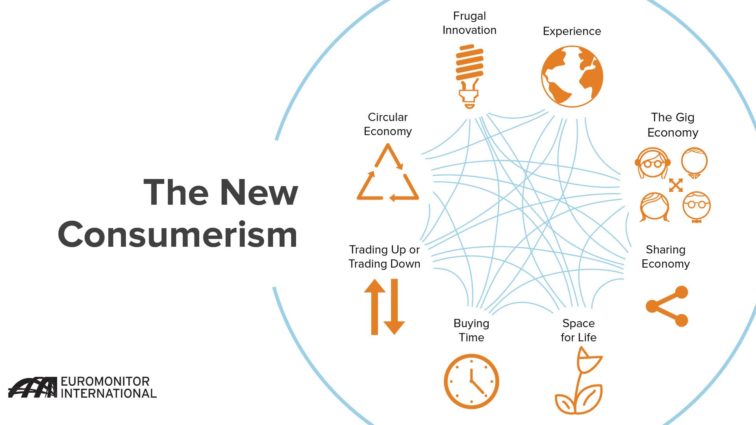“It’s not the strongest of a species that survives, nor the most intelligent that survives. It is the one that is most adaptable to change”. Charles Darwin
Are you adapting to change?
Are you adapting to changing consumer and customer behaviours?
We are all consumers ourselves. Can you reflect on your changes in consumer behaviours and patterns over recent years?
At the October SBIA roundtable Anthony Wilson (Saltwater Wine / Stormriders), Paul Burdekin (Billabong) and Clint Fraser (Davidsons Business Advisors) facilitated a session to unpack and better understand the way in which consumers behave, how it impacts our industry and what actions we could implement to adapt to changing consumer behaviour.
In a world of disruption (think Uber) and global connection (think Amazon) we are motivated differently, we behave differently, we seek different purchasing experiences and we consume products differently. The SBIA session introduced the concept of “New Consumerism”, broke down the seven components and working groups collaborated to identify potential calls to action.
WELLBEING
A trend which continues to drive consumer behaviour and is an underlying principle of the New Consumerism. Wellbeing isn’t just about healthy eating or natural products, it includes prioritisation of time for ourselves and changing spending behaviours from belongings and possessions to experiences.
Call to action – connect to consumer beliefs and lifestyle via better story telling, communication and identification of products that resonate with personal wellbeing.
SIMPLICITY
An antidote to endless choice, constantly updated products and services and unnecessary and complicated features, the search for simplicity is crucial to the idea of consumers reassessing their priorities and wanting simple solutions.
Call to action – embrace simple technology and communication mediums and focus on clear and simple messages
SUSTAINABILITY
Increasingly important in the minds of consumers who are aware of the immediate and long term environmental effects of the products they consume. Sustainability gives priority to what you already have and using as few natural resources as possible.
Call to action – updating shopping bag materials to be in line with best practice environmental solutions, water refill stations within store, collaboration with environmental groups and advocacy of environmental issues.
THRIFT
Post-recession, consumers embraced the thrill of thrift, a “make do and mend” mentality of repairing, recycling and upcycling.
Call to action – review, improve, repair and trade in programs and improve warranty and guarantees.
TECHNOLOGY
Technology is enabling and facilitating many of the features of New Consumerism. It enables consumers instant information and access to products and facilitates the purchase from anywhere in the world, any hour of the day from the palm of your hand.
Call to action – better understand digital consumer touchpoints and improved B2B communication between retailers and brands via current technology.
AUTHENTICITY
The move towards conscious consumption (over and above conspicuous consumption). The desire for authentic travel experiences by staying in someone’s home (AirBnB) rather than a hotel chain underlines the importance of authenticity and the significance of story-telling for a brand.
Call to action – bring back the instore surf experience and tell the surf, snow and skate story. It is important that all your team live the lifestyle, we need to know what banks are good at the local, what is the best run on the mountain, or the best local bowl or street to skate. This goes as long way in being real and authentic with the lifestyle.
FREEDOM
Freedom from, and freedom to do, can be the ultimate in luxury or a basic human right. Freedom has become a craving for many consumers in an always-on world removing the constraints of ownership, with the trend of buying time – providing the freedom to experience life, and with experience – the prioritisation of doing, seeing and feeling over having more “stuff”.
Call to action – link our products and lifestyle to providing freedom solutions for customers and story tell the travel and escape that is consistent with surf, skate and snow. Make the retail and purchase experience simple and fast in order to give time back to customers.
So have you considered how New Consumerism concepts have affected your customers? Are you adapting to change? What are your calls to action?
In the words of Seth Godin “Don’t find customers for your products, find products for your customers”









